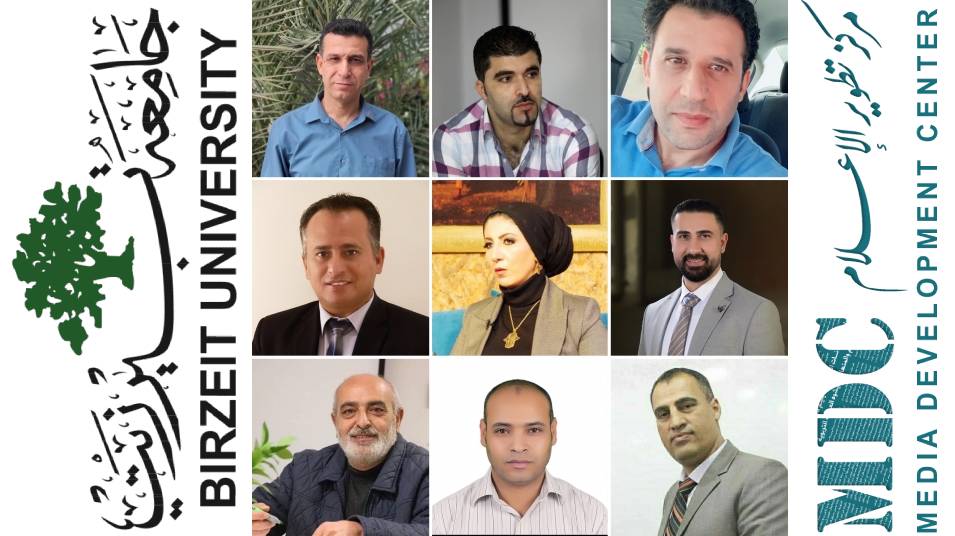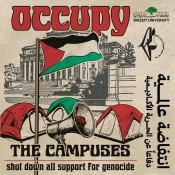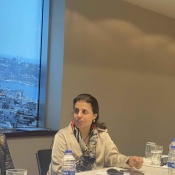Instructors, researchers explore digital media education advancements in Media Development Center workshop
Forty media researchers, experts, and instructors discussed advancements in digital media and how they would be reflected in university courses and programs in an online workshop organized by Birzeit University’s Media Development Center on Saturday, August 14, 2021.
Featuring researchers and media professors from Palestinian, Egyptian, Qatari, and Iraqi universities and research centers, the workshop aimed to explore how the transformation from traditional to digital media, accelerated by the COVID-19 pandemic, can be integrated into the teaching and learning activities of media programs in higher education institutions.
Nibal Thawabteh, director of the Media Development Center, said that digital media has become an integral part of modern society, fueled by technological advancements in communications and societal transformations. The increased use and relevance of digital media, and the concomitant changes, should be thoroughly analyzed by researchers and academics such that new generations of students can fully take advantage of these new tools, she added.
Dr. Omar Abu Arqoub, an assistant professor of communication and media studies at the Arab American University, stressed the impact of COVID-19 on communication, in general, and the nature of teaching and learning in particular, noting that media instructors at Palestinian universities developed interactive skills that helped them bridge the digital gap with their students. Such skills, he explained, can help them design modules and devise teaching methods that are more suitable for digital media instruction and training.
Emphasizing the effect of COVID-19 on media teaching and learning at Palestinian universities, Dr. Talat Issa, a professor of journalism at the Islamic University of Gaza, said that students are now better prepared to understand and utilize digital media tools due to their experience with technology during the shift to online learning. The skills students developed, he noted, must be further refined and honed by instructors through updated teaching methodologies, modules, and programs.
Dr. Said Shaheen, an assistant professor of media at Hebron University, stressed the importance of developing new modules and teaching paradigms that provide students with the skills and knowledge required to excel at digital media, whether in their academic or professional careers. Such a change, he added, requires adopting new pedagogical and hiring strategies at educational institutions in Palestine.
Khaled Halabi, an instructor in Al-Aqsa University’s Faculty of Media, cautioned against engaging in the development of media programs at Palestinian universities without a solid strategy that takes into consideration the principles, values, and ethics of media.
In the same vein, Dr. Mohammed Abualrob, an assistant professor of media at Birzeit University, said that advancements in digital media studies and programs must take place against a backdrop of critical engagement with new media as a whole. At Birzeit University, he noted, the media program was modernized with new and updated modules that cover developments in digital media in addition to highlighting areas where this field can be advanced.
Dr. Nader Salha, director of the master’s program in digital media at Al-Quds University, said that the transformation to digital media must be understood in context as an expansion of journalism into other fields using technological means. Such an understanding, he emphasized, allows faculty members, researchers, and students to leverage the strengths of the tools offered by digital media while avoiding the pitfalls usually associated with relatively new fields.
At the end of the workshop, Emad Alasfar, the monitoring and evaluation coordinator at the Media Development Center, and Saleh Masharqeh, the media research and policy coordinator, presented a précis of the participants’ discussions and recommendations, arguing that developments in universities and the broader Palestinian community with regards to digital media have to be part of a planned effort organized together with public, private, and civil-society organizations.







